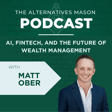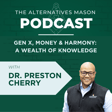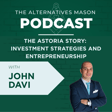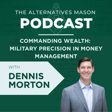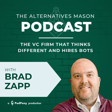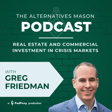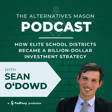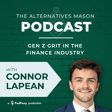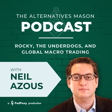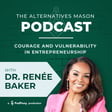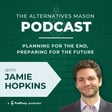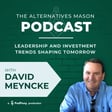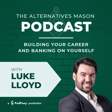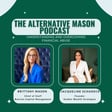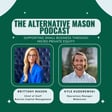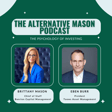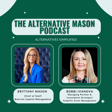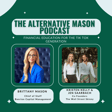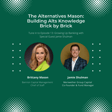
The Alternatives Mason: Building Alts Knowledge Brick by Brick | Episode 16 | New Opportunities in Commercial Real Estate Featuring Cory Johnson
Welcome to The Alternatives Mason: Building Alts Knowledge Brick by Brick. Banrion Capital Management uses technology to help independent advisors scale and educate themselves on alternative investments. Since education is such a big piece of the Banrion mission and business, we are excited to kick off this series to dive into the nits and grits of the alternatives space. Episode 16 "New Opportunities in Commercial Real Estate" features Cory Johnson, Co-Founder & CEO of Pender Capital.
Cory Johnson serves as Chief Executive Officer of Pender Capital and brings over 20 years of experience in real estate acquisition, development, finance, and asset management. Mr. Johnson co-founded Pender Capital Management in 2015 and is responsible for the firm’s strategic vision and financial success. The firm is an SEC-registered investment advisor, specialized in U.S. based real estate credit opportunities. Since inception, the firm has funded over $676,900,000 in loans, secured by commercial real property collateral valued in excess of $1,060,676,301*. Prior to Pender Capital, Mr. Johnson founded several opportunistic real estate funds, which deployed value-add strategies through asset repositioning, while maintaining attractive risk-adjusted returns for investors. In 2012, Mr. Johnson co-founded Latitude Properties, LLC, a vertically integrated real estate investment firm focused on the acquisition, stabilization, and disposition of distressed single-family residences throughout Central and Southern California. In 2008, Mr. Johnson served as Managing Partner and Co-Founder of Paladar Capital Investments, L.P., and Montero Capital, LLC, with each fund specializing in the acquisition and repositioning of distressed single-family residential assets. From 2006 to 2008, Mr. Johnson served as land acquisition manager for M.D.C. Holdings, Inc., the nation’s 9th largest homebuilder at the time, where he was responsible for acquiring prospective development sites based on suitability requirements. From 2002 to 2005, Mr. Johnson served as a business development representative for Weyerhaeuser Mortgage Company, a GE Consumer Finance company. During his tenure at GE Consumer Finance, Mr. Johnson’s team originated more than $525 million in residential debt. Mr. Johnson holds a bachelor’s degree in economics from the University of California, Santa Barbara.
*The aforementioned collateral value is based on the value of the property at the time of origination, with funding issued through Pender Capital Asset Based Lending Fund I, L.P. (together with any of its affiliates), Pender Capital Management’s inaugural fund.Connect with Cory:
Learn More About Pender Capital: Pender Capital
Connect with Cory on LinkedIn: Cory Johnson
Learn More About Banrion: Banrion Capital Management
Follow Brittany on 𝕏: @Brittany_Mason
Follow Banrion on 𝕏: @Banrion_Capital
Subscribe to our YouTube Channel: @BanrionCapital
Important Disclosures:
The opinions expressed on the “The Alternative Mason Podcast” are for general informational purposes only and are not intended to provide specific advice or recommendations for any individual or on any specific security.
It is only intended to provide education about the financial industry. To determine which investments may be appropriate for you, consult your financial advisor prior to investing. Any p
